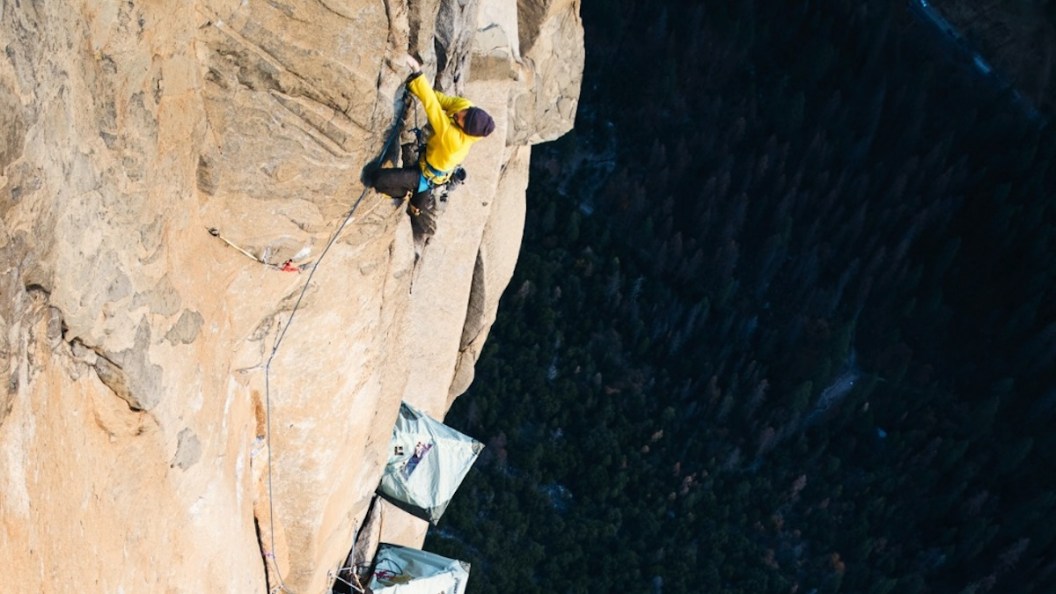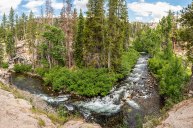A bipartisan group of lawmakers on Tuesday passed the Expanding Public Lands Outdoor Recreation Experiences (EXPLORE) Act, earning wide praise from outdoor advocacy and industry groups. The measure, which passed by a voice vote in the House, aims to improve the visitor experience on federally protected public lands by updating infrastructure, streamlining permits for small businesses, and protecting recreational activities.
When the EXPLORE Act was filed at the end of November, lawmakers explained that it was the culmination of multiple bills designed to simplify the bureaucratic process. Congressman Tom Tiffany, a Republican from Wisconsin who chairs the House subcommittee that heard the measure, said the "central theme" of the bill was to give outdoorsmen and women an easier time accessing public lands like national parks, forests, and conservation areas.
Coincidentally, an issue that exemplified problems the bill aims to resolve emerged around the time of its filing. The National Park Service and Forest Service proposed a rule that would prohibit fixed anchor climbing in wilderness areas on federal land. While the stated reasoning was preservation, agency heads said the demand was born out of budgetary requirements rather than immediate environmental concerns.
Critics like the climbing advocacy group the Access Fund argued that the rule if implemented would eliminate most of the climbing routes in the country and make the sport less safe. Heather Thorne, the executive director of the Access Fund, said in a statement that she applauds the House for passing the measure and that she urges the Senate to build on the momentum. Spokesmen with the Access Fund argued that Congress passing legislation was the only way to protect recreational activities like climbing from falling victim to arbitrary bureaucratic processes.
After the House vote, Jessica Wahl Turner, president of the Outdoor Recreation Roundtable, an industry group promoting policies to expand access and create opportunities, issued a statement calling the EXPLORE Act "a pivotal advancement for outdoor recreation and the outdoor recreation industry in the United States," which her organization values at $1.1 trillion. She said the bipartisan approval an example of "our collective commitment to ensure outdoor experiences are accessible to every American now and for future generations."
Robert Scott, deputy director of federal policy for Sierra Club, a national environmental organization, applauded specific policies within the EXPLORE Act, such as the Outdoors For All Act to expand access to public recreational space to economically disadvantaged communities; the Military and Veterans in Parks Act to promote outdoor opportunities for veterans and active servicemen; the Every Kid Outdoors program to provide free access to all 4th graders and their families; and the Simplifying Outdoor Access for Recreation Act to reduce barriers for service-oriented businesses like guides and outfitters.
"Many families struggle to safely or affordably access our public lands," Scott said in a statement. "Whether it's inaccessible trails that people with mobility issues cannot use, a lack of parks within walking distance of a family's neighborhood, or the increasing costs of planning large trips to visit a national park, all our communities deserve to enjoy nature and outdoor recreation amenities."
Moving forward, the bill goes to the Senate Committee on Energy and Natural Resources, which is chaired by Sen. Joe Manchin, a Democrat from West Virginia, and Sen. John Barrasso, a Republican from Wyoming. According to the policy tracking website GovTrack, the EXPLORE Act has a 52% chance of being enacted. The Senate has not scheduled a hearing for the bill.




